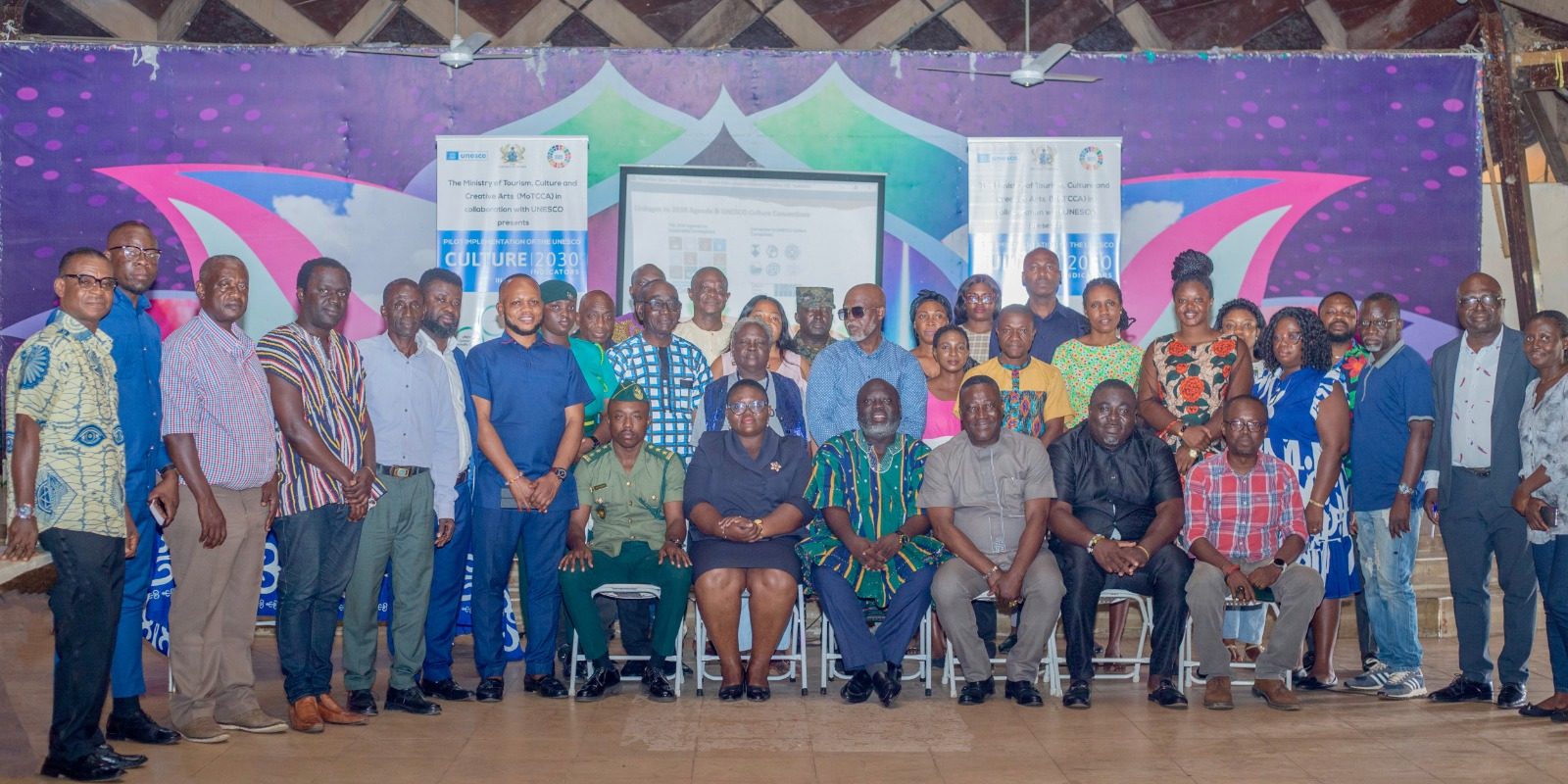The Ministry of Tourism, Culture and Creative Arts (MoTCCA), in collaboration with the Ghana Commission for UNESCO and the UNESCO Accra Office, has held a two-day stakeholder engagement workshop in Kumasi as part of the national rollout of the UNESCO Culture|2030 Indicators Project.
The workshop, held from August 13–14, 2025, marks the second regional engagement following the project’s national launch in May 2025 and the initial session in Greater Accra. It forms a critical part of Ghana’s commitment to embedding culture into its sustainable development agenda using data-driven approaches.
Ghana’s adoption of the UNESCO Culture|2030 Indicators Framework underscores the country’s leadership in integrating culture into evidence-based planning and policy-making. The framework enables countries to measure and assess the contribution of culture across key development areas, particularly Sustainable Development Goals (SDGs) 4 (Quality Education), 5 (Gender Equality), 8 (Decent Work and Economic Growth), 11 (Sustainable Cities and Communities), and 16 (Peace, Justice, and Strong Institutions).
Supported by funding from the European Union, the implementation of the project in Kumasi is part of a broader initiative titled “Advancing evidence-based policies and actions and supporting policy making to enhance the contribution of creative sectors and industries to sustainable development.” This financial backing is enabling city-level implementation and capacity-building efforts.
Participants at the Kumasi workshop included representatives from various departments, agencies, and organizations across the Ashanti Region. They were engaged in interactive sessions and practical exercises aimed at strengthening local capacity in cultural data collection, analysis, and policy development.
Key objectives of the workshop included introducing stakeholders to the Culture|2030 Indicators framework, its structure and methodology, and emphasizing culture’s critical role in sustainable development. The initiative also seeks to align national and local cultural policies with global SDG monitoring efforts, while fostering dialogue on cultural statistics and planning.
The Ministry reaffirmed its commitment to ensuring that cultural development is not only recognized but effectively measured and supported as part of Ghana’s development strategy. Kumasi’s Metropolitan Assembly is also playing a pivotal role in facilitating the project’s implementation at the city level.
By integrating culture into sustainable development strategies through measurable indicators, Ghana continues to lead in creating data-informed cultural policies that benefit both local communities and national development goals.
Source: Delassie Mabel Awuku -Publica Relations Unit – MoTCCA







